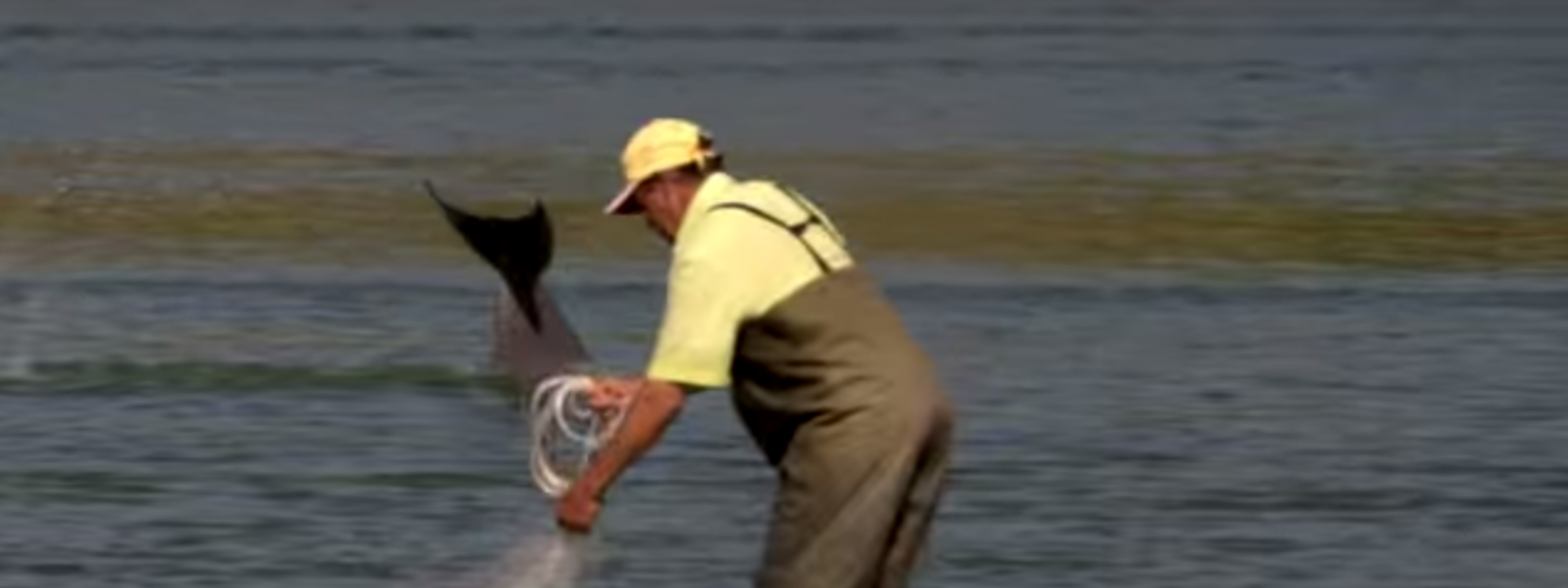

In Taiji, Japan, fishermen round up dolphins with banger poles and nets, killing the dolphins or selling them into captivity. In other places in the world, wild dolphins help fishermen round up fish and herd them into nets, to the benefit of fisherpersons of both species.
As unbelievable as it sounds, the video below depicts a group of fishermen in Laguna, Brazil, who have developed a relationship over many generations with a local pod of dolphins. Together, the human and dolphins fish, and together, they enjoy the spoils.
During the annual migration of mullet that arrive at Laguna’s coastline, the fishermen wait at the shore with nets in hand. The dolphins arrive and begin rounding up the fish, and give a special signal to the humans when it is time to throw their nets into the water. The nets catch a huge portion of the fish, and the remaining ones scatter in ways that likely allow the dolphins to more easily catch them. This situation is beneficial to both dolphin and human.
In our contemporary western societies, it is rare to see instances where humans take cues from other animals for any reason. In fact, our most common interactions with other wild animals tends to be our killing or exploiting them – be it through factory farming, sport hunting, or, in direct contrast to Laguna, the dolphin drive hunts that occur from September to March in Taiji’s bloody Cove.
Sometimes, the Taiji hunters give excuses for killing dolphins, claiming that the cetaceans are pests who eat too many fish and reduce catches for humans. But if we are to look towards places where there is interspecies cooperation, like Laguna, the error of the Taiji killers’ ways is made all the more clear.
Of course, relationships like the ones in Laguna take years to form, as they must be built upon a foundation of trust and understanding. To go from exploitation to cooperation could take decades, or could never be realized. In the Eastern Tropical Pacific, where dolphins have been chased and encircled mercilessly since the 1950s, dolphins still take immediate flight when they hear tuna boat engines. The traumas linger and could take decades to unwind.
The first step, of course, is to cease the killing. The journey towards trust is a long one, yet it is arguably the most worthwhile one we should explore.
Watch the compelling video: